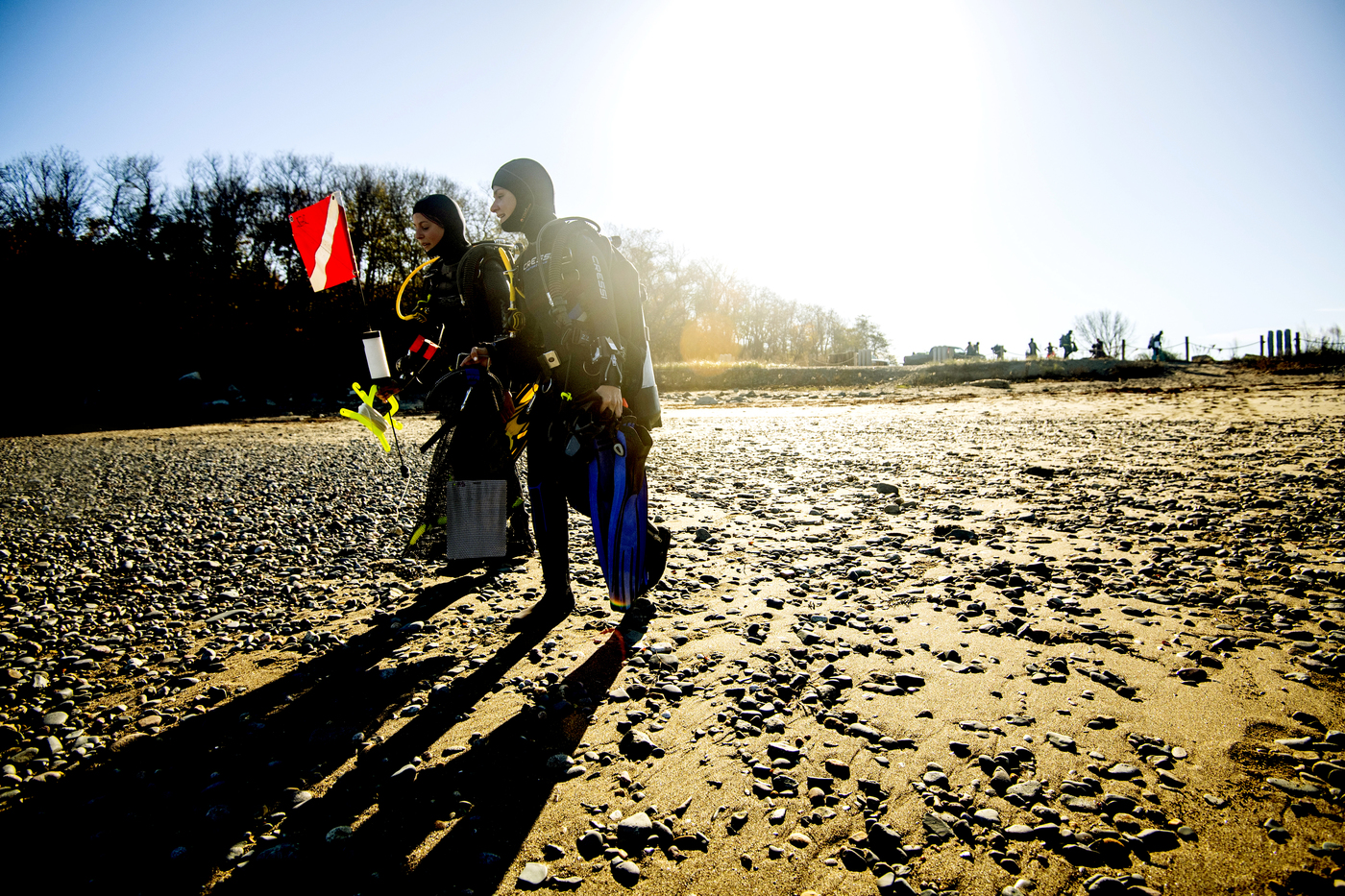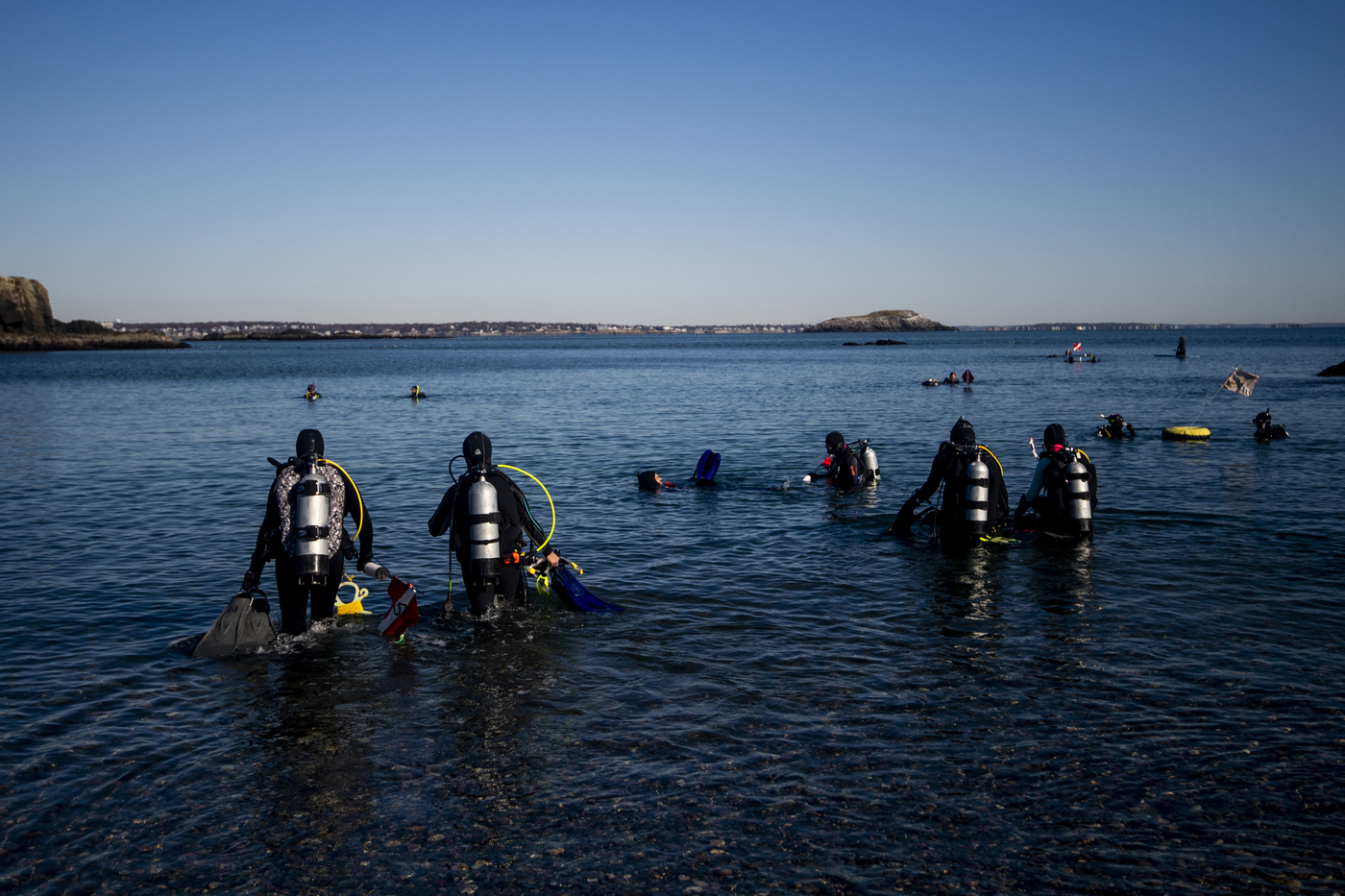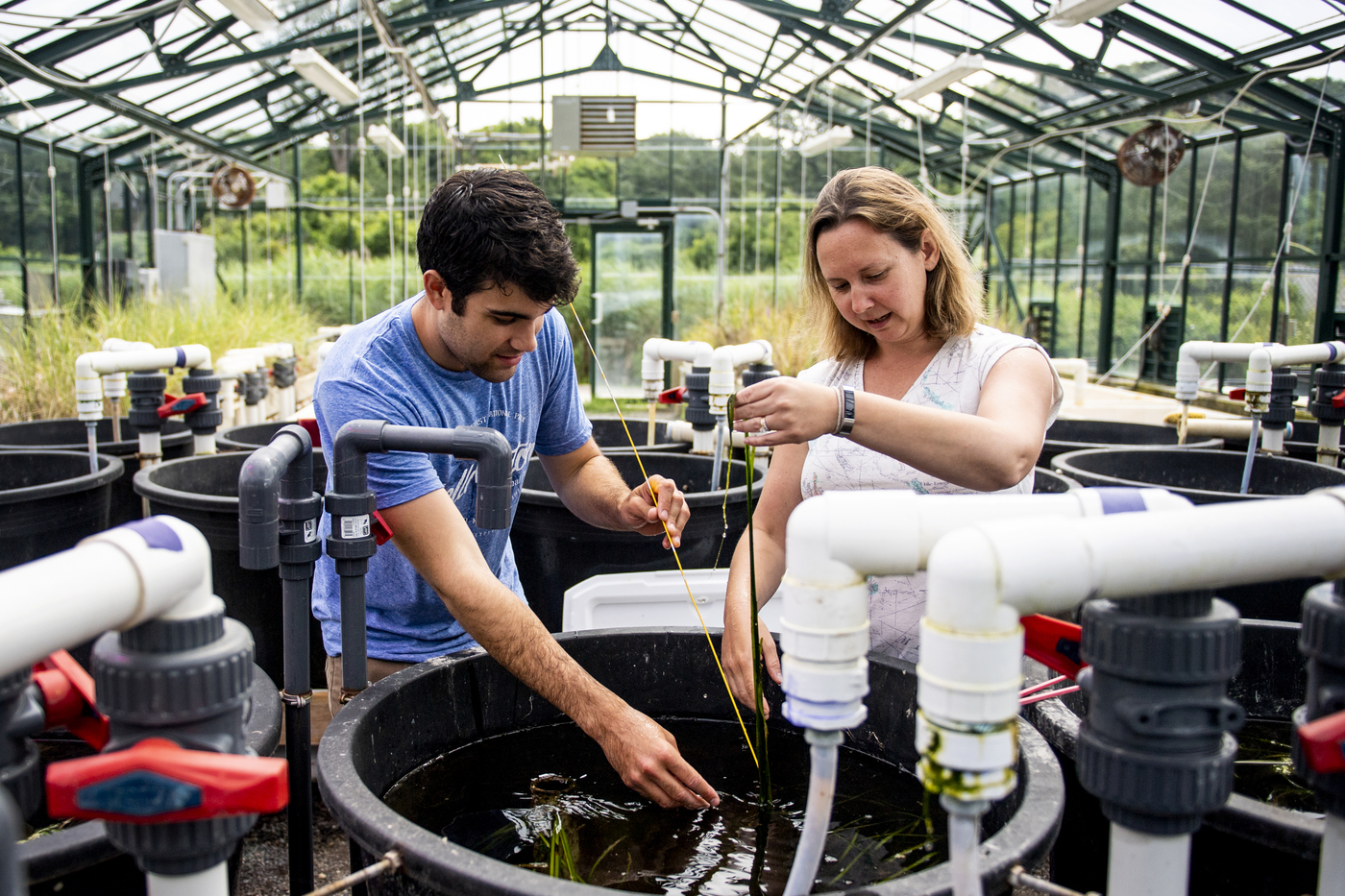
By Emily Arntsen/News at Northeastern
Northeastern University has offered to place a conservation restriction to permanently prevent future development of approximately eight acres of existing open space on its Nahant campus. The open space to be preserved is located east of Murphy Bunker, which houses several of the university’s marine science research labs.
In addition, the university has offered to grant the Town of Nahant an easement to ensure continued public access to Canoe Beach from the adjacent municipal parking area. The conservation restriction and access easement would take effect following the completed expansion of the university’s Marine Science Center.
The Nahant Board of Selectmen has proposed taking the open space from Northeastern by eminent domain. Instead, the university’s offer to place the conservation restriction would preserve, at no cost to the town, approximately 90 percent of the open space sought by selectmen, who propose spending $4.5 million to acquire the parcel. University officials estimate that the cost of the proposed taking would be substantially higher.


Under the conservation restriction, the university would forgo its existing development rights on the area east of Murphy Bunker. Northeastern would also undertake an extensive environmental remediation program to eliminate invasive species and restore native biodiversity to the area. The eight acres are contiguous to Henry Cabot Lodge Park, which is owned by the town of Nahant, and would be left alone and protected as an ecological study area.
“We hope everyone will see that there’s an opportunity to preserve a very special part of Nahant at no cost to residents,” said Ralph C. Martin II, senior vice president and general counsel for Northeastern. “This restriction is completely consistent with our desire to upgrade the Marine Science Center, which is to promote environmental sustainability—in Nahant and beyond.”
Northeastern acquired the former East Point Military Reservation in Nahant in 1966, after the town of Nahant declined to purchase almost 21 acres from the U.S. Department of Defense. At that time, the abandoned fort and surrounding areas were stripped of vegetation and left unkempt.
But since constructing the research center at the former military site in 1967, the university has improved the environmental conditions of its East Point property and, among other activities, conducted ecological research that stands to benefit coastal communities such as Nahant.
As coastal communities have faced increasingly complex environmental threats, the Marine Science Center has been an active partner in developing solutions to help those communities be more sustainable and resilient.


Northeastern researchers in Nahant have studied the flood risks from man-made alterations to rivers, developed robotic mussels to understand the effects of rising ocean temperatures, and found innovative ways to monitor plastic waste that has made its way into the ocean.
The facility is also home to the Ocean Genome Legacy, a repository of more than 25,000 marine DNA and tissue samples built to preserve the genetic information of species that may one day go extinct.
Now, Northeastern plans to expand the facility in Nahant to provide researchers with state-of-the-art tools to enhance the impact of this critically important work.
In addition to the planned conservation restriction and Canoe Beach access easement, Northeastern previously offered the town a multimillion-dollar financial package to mitigate any impacts the Marine Science Center expansion project may have on town infrastructure, help fix the town’s water and sewer system, and assist the town with operating and capital budget needs.
The package also includes tuition scholarships for Nahant residents to attend Northeastern, funding for the town’s elementary school art and music program, scholarships for local elementary and high school students to attend the center’s Coastal Ocean Science Academy summer program, paid internships at the Marine Science Center for Nahant students, and free public lectures and films for residents.
Additionally, the university would fund a research program to help the town develop innovative solutions to combat climate change-related threats such as storm surge and sea level rise.
(Reprinted with permission from the News at Northeastern.)



















